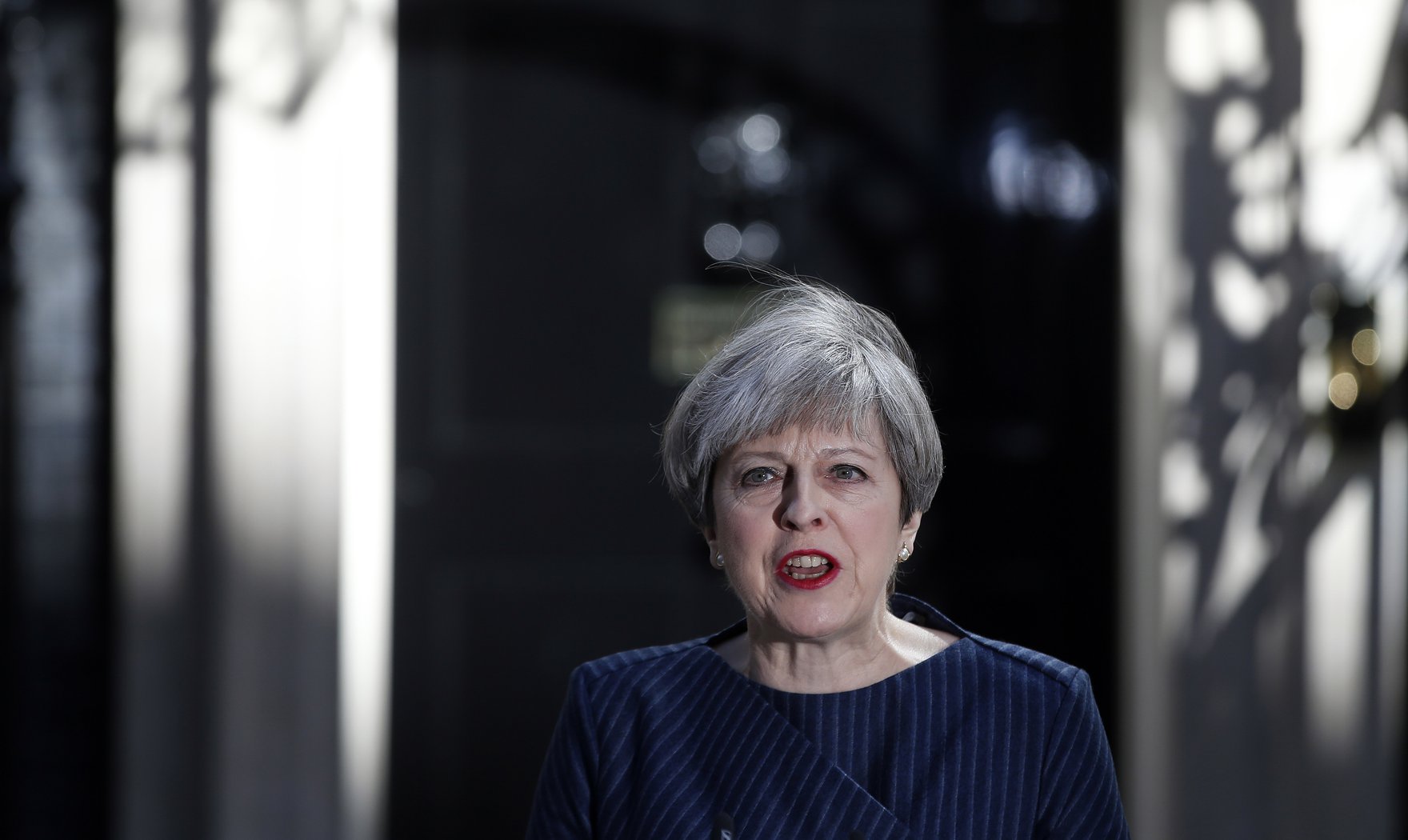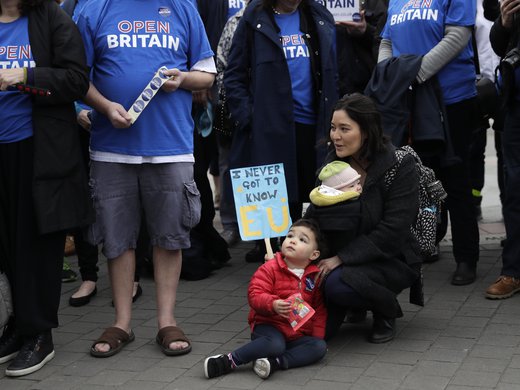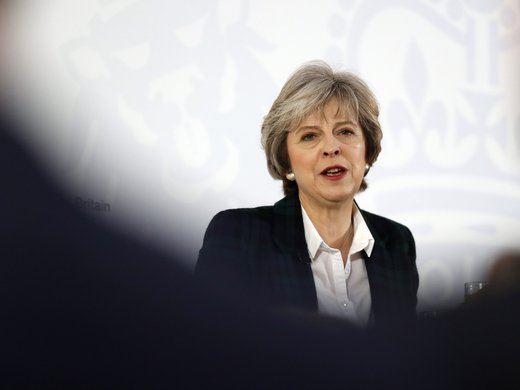The UK general election will help determine just what kind of Brexit the country is heading toward. It may be soft. It may be hard. Or it may end up broken.
If the opinion polls are trustworthy, Prime Minister Theresa May’s Conservative Party will have a huge victory on June 8. That prospect alone is enough to tempt any politician. But fear may also have motivated her decision to call for a vote now. The tribulations of the Brexit negotiations will be a severe test of her current narrow majority.
The talks will undoubtedly expose the fundamental problem with leaving the European Union — it is a thoroughly bad idea. Well, that is not quite fair. Brexit is justly endorsed by those people who think fictions about national sovereignty are more important than domestic prosperity, regional peace and global respect.
In last year’s referendum, the core of the “Remain” vote were the young and the well-educated. As the talks progress, their wisdom will become clear.
It is worth remembering that May was once one of them. She could well want to use a stronger position in Parliament to get approval for as soft a Brexit as is politically palatable. She might even be harbouring thoughts of an ultra-soft Brexit, a withdrawal in name but not in substance. She would certainly need strong parliamentary backing to get away with that, because the Daily Mail and The Sun, powerful newspapers and rabid supporters of Brexit, really do prefer to trade in myth rather than truth.
Investors seem to think May is a Brexit softie at heart. In response to the election announcement they bid up the pound, which has been the bellwether of market sentiment on Brexit. Theirs might be wishful thinking. The prime minister has not talked much about her European plans, but when she does, she usually shows the wild fervour of the newly converted.
Psychologically, a body-snatching by the forces of foolish nationalism is all too plausible. Most British people of May’s generation and social class have a strong and visceral English identity, while their support of the European Union was never more than intellectual and qualified. This psychological mix lies behind the national elite’s passive acceptance of May’s decision to go full steam ahead into Brexit. It may well also lie behind that decision itself.
Even if May herself has not been fully persuaded of the virtues of a hard exit — a departure that could leave the United Kingdom scrambling to do any trade with Europe — Conservative Party politics push her in the direction of economic and cultural self-harm.
She does not have to worry about former Remainers in her party. The referendum aftermath showed they will follow the prevailing current. But Brexit fanatics are a real concern. They account for no more than 10 percent of the voters and are far from a majority among Conservative Party members. But what they lack in numbers they make up for in zeal.
May is obliged to appease them because they are like the Bolsheviks at the beginning of the Russian Revolution. Inspired by messianic self-confidence and abetted by inept opposition, the minority group has taken control.
The Soviet analogy is not some Remain slander. It was the Daily Mail that paraphrased Lenin. In 1918, the Russian revolutionary said, “As for the saboteurs, we shall crush them”; the Mail’s headline announcing the election was: “Crush the Saboteurs.” But Great Britain is not in the desperate straits of pre-revolutionary Tsarist Russia. A full Bolshevik-style takeover by anti-EU fanatics is not a historical inevitability.
The recent American precedent is intriguing. When Donald Trump was elected president, many observers saw Brexit II. They thought the rising historical tide of nationalism and authoritarianism would support the rapid imposition of radical policies. So far, such plans have mostly been stymied by the courts, Congress and the common sense of many of Trump’s counsellors. Trumpism still resides in the White House, but its momentum may well have peaked.
The Brexit drive could suffer a similar decomposition. Only a small change in sentiment is needed to create a popular majority in favour of the former elite consensus. Simple demographics suggest that the 48 percent of the voters who felt that way last year would now be closer to 50 percent. The young were more for staying and the old more for leaving, so death and coming of age push toward “Remain,” all other things being equal.
The potential anti-Brexit bloc lacks a charismatic leader. There is no British equivalent to Emmanuel Macron, the unabashedly pro-EU front-runner in the French presidential election. He created his own political movement, taking advantage of the unpopularity of the existing groupings. The UK system is also stale, and many voters currently feel ignored. If a bold politician can motivate them, either before or after this election, Brexit may yet be broken.



